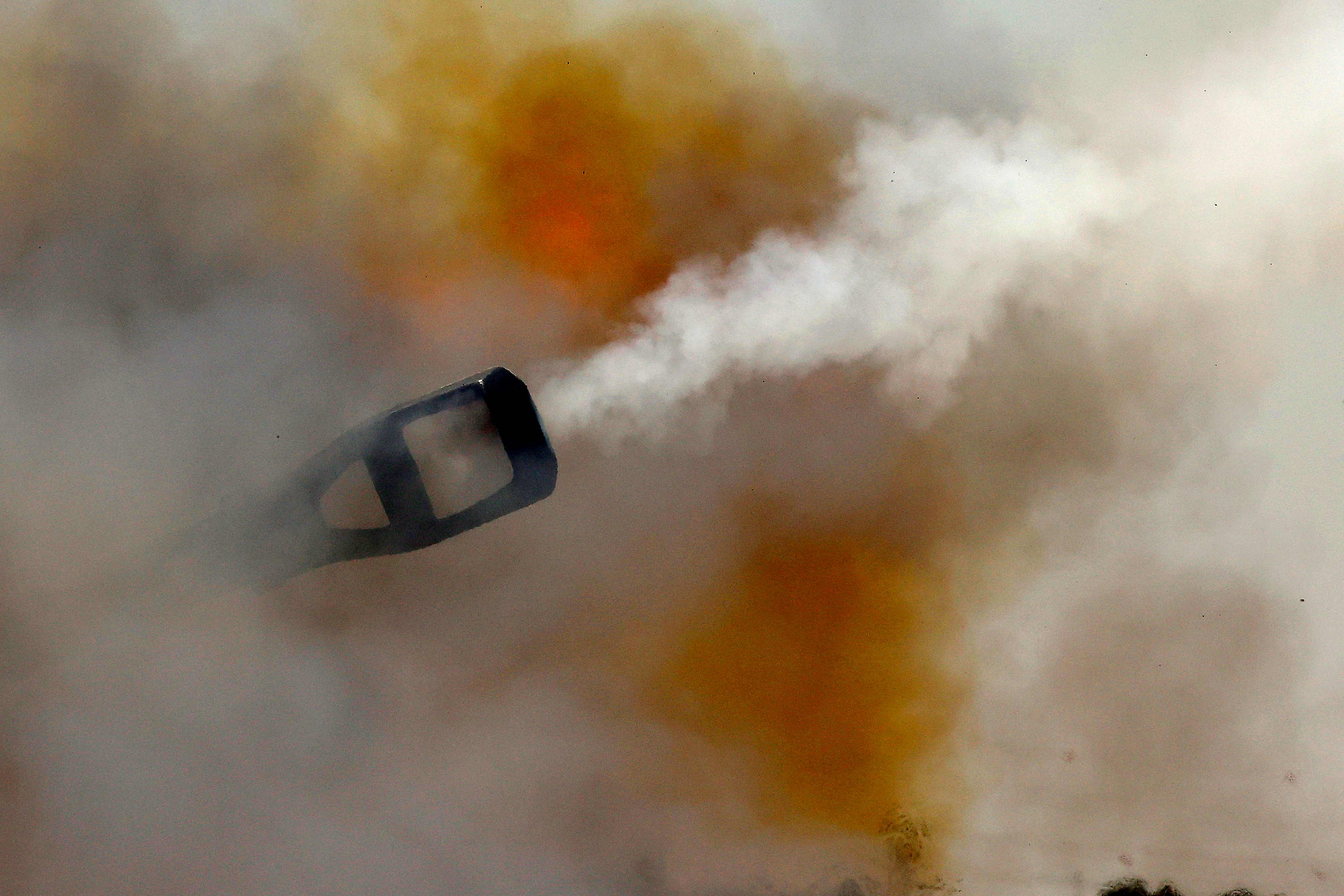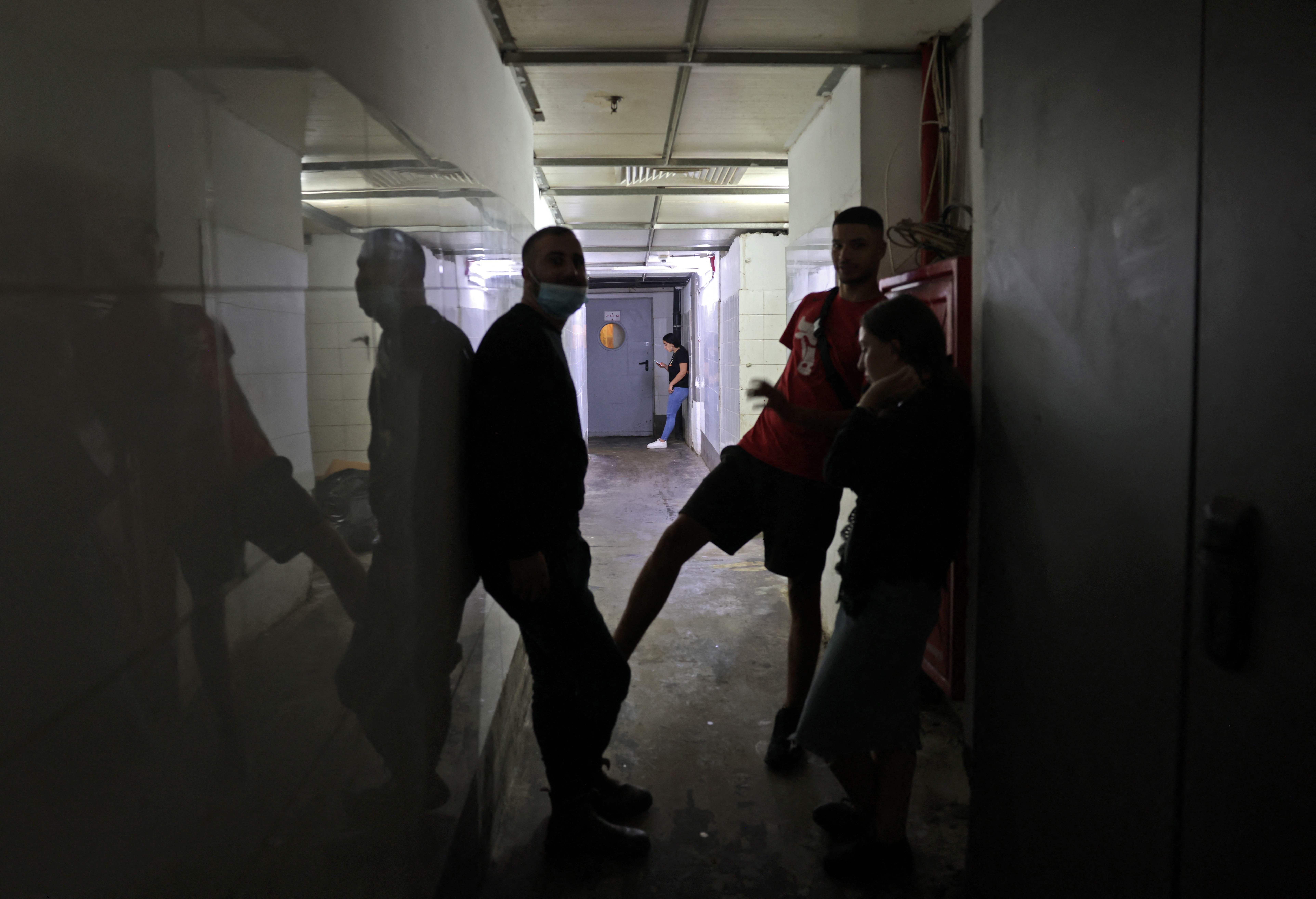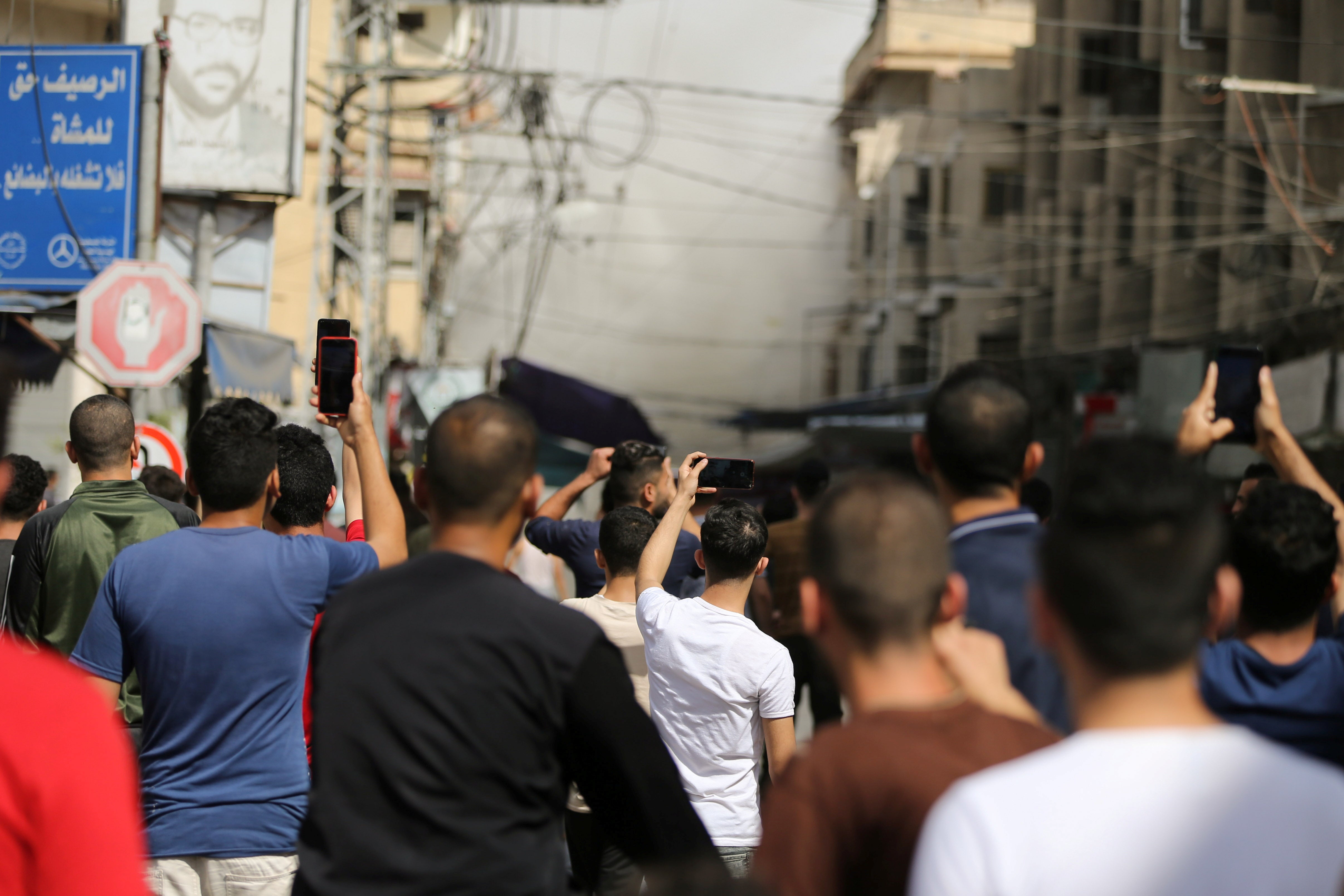An end to assassinations and tunnels: The route to an Israeli-Gaza ceasefire
As hopes of a ceasefire grow, Kim Sengupta reports from Israel on what is being negotiated to secure an end to the fighting


Flickering hopes of a ceasefire in the latest conflict between Israel and Hamas, one of the most violent in recent years, have grown stronger with signals that the death and destruction might be coming to an end amid international pressure.
The Israeli military carried out around 15 attacks in Gaza early this morning as well as shelling by the navy, with Hamas responding with rocket fire. But this was followed by a long cessation of military action with the exception of isolated incidents.
The acceleration towards a possible truce came after Joe Biden told the Israeli premier Benjamin Netanyahu on Wednesday that he wanted “a significant de-escalation on the path to a ceasefire”. The US President had faced criticism, including from his own Democratic Party, for not speaking out as the death toll has continued to grow.
The US blocked a draft UN Security Council resolution on Wednesday calling for a ceasefire. It was the fifth time it had stopped the Council from issuing a statement calling for an end to hostilities, with Washington maintaining that it would hamper its own attempts to end the strife.
US officials insisted that this was not just rhetoric and they had been actively and busily engaged behind the scenes. The phone call between Mr Biden and Mr Netanyahu, they pointed out, was the fourth in a week.
As part of the international drive for a ceasefire, the German foreign minister, Heiko Maas, was due to meet with Palestinian and Israeli leaders in Ramallah and Jerusalem on Thursday. The UN Middle East envoy, Tor Wennesland, had met the Hamas leader, Ismail Haniyeh, in Qatar on Wednesday.
The first public indication of a breakthrough came after Moussa Abu Marzouk, the deputy chairman of the Hamas political bureau, said that “ongoing efforts” were close to success. “I expect a ceasefire to be reached within a day or two, and the ceasefire will be on the basis of mutual agreement” he told al-Mayadeen TV in Lebanon.

Mr Netanyahu has said that he was “determined to carry on” until “calm and security are restored to Israeli citizens”. And the Israeli intelligence minister, Eli Cohen, dismissed reports of a ceasefire before the weekend, maintaining “we will finish the operation when we have decided we have attained all our goals”.
The Wall Street Journal reported that those involved in negotiations believe it can come by Friday. A former senior Israeli security official told The Independent: “I think we have largely achieved our military objective within the broad parameters – and they were pretty broad – we were given by the security cabinet, it’s a political decision now and the feeling is that a ceasefire will probably take place, but there are some issues to be resolved.”
Among the issues under discussion, it is believed, is Hamas’ demand that Israel ceases targeted assassinations of Hamas commanders and the Israelis demanding that Hamas stopping building its underground tunnels, stop rocket attacks and demonstrations at the border.
Also under discussion, it is believed, are the return of two Israeli civilians held by Hamas and the repatriation of the bodies of two Israeli soldiers. In the longer term, Israel is being asked to ease the supply of goods into Gaza, and to loosen commercial restrictions.
Israeli forces have regularly carried out ‘decapitation’ campaigns against Hamas in Gaza, and this has been a focus in the current conflict as well. Egyptian officials, acting as mediators, have said they have had difficulty contacting Hamas leaders because they had taken shelter underground and could not be reached on their mobile phones.
The latest round of air strikes this morning included the targeting of a house in the Khan Younis area. The Israeli government claimed that there was “military infrastructure” located near the building.
Israeli officials refused to comment on claims that some of the latest strikes were a ‘last ditch’ attempt to eliminate Mohammed Deif, the Hamas military commander, from Khan Younis, who has escaped several attempts to kill him.

However, on Wednesday, Brigadier General Hidai Zilberman, a spokesman for the IDF, said “throughout the operation, we have tried to assassinate Mohammed Deif”.
The Hamas commander, a long-standing adversary of Israel, has been a frequent target.
The attempts to assassinate him included the bombing of his house in the Sheikh Radwan district of Gaza during the 2014 conflict. One of his wives, 28-year-old Widad, and their infant son, Ali, died in the strike.
According to the health ministry in Gaza, more than 230 Palestinians have been killed since the start of the conflict, including more than hundred women and children. The Israeli military say that 150 of those killed were fighters. Hamas rocket attacks have killed more than a dozen people in Israel, including two children.
Join our commenting forum
Join thought-provoking conversations, follow other Independent readers and see their replies
Comments